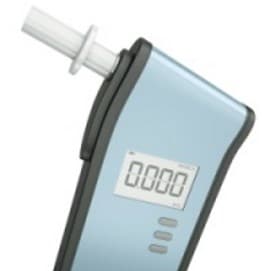 In Washington State, DUI penalties are enhanced for drivers who refuse to take a breath test (at the police station) or a blood test. Under Implied Consent Law, a person who drives within WA State is considered to have consented to a blood or breathalyzer test if arrested for DUI.
In Washington State, DUI penalties are enhanced for drivers who refuse to take a breath test (at the police station) or a blood test. Under Implied Consent Law, a person who drives within WA State is considered to have consented to a blood or breathalyzer test if arrested for DUI.
It is not uncommon for drivers to take the optional portable breath test on the roadside and then refuse to take the required breathalyzer test at the police station. If the police officer does not clearly communicate what is optional and what is required, this can be one of many important defenses to a DUI refusal.
What are the Penalties for Refusing a Breath Test?
In Washington State, DUI is a criminal traffic offense. This means that a conviction will go on your criminal record as well as your driving record. The charge is a gross misdemeanor that can result in the following penalties and consequences:
- 2-4 year License Suspension
- Up to $5000 fine
- Alcohol/Drug treatment requirements
- Jail time of 2 to 364 days
- Ignition interlock requirement
- Probation
- High Risk SR-22 Insurance
The below table shows how a license suspension and mandatory jail time differ for those who take the breathalyzer test and for those who refuse to take the breath or blood test:
First offense
| Breath/Blood Test | Under .15 | Over .15 | Refusal |
| License Suspension | 90 days | 1 year | 2 years |
| Mandatory Jail Time | 1 day | 2 days | 2 days |
Second Offense
| Breath/Blood Test | Under .15 | Over .15 | Refusal |
| License Suspension | 2 years | 900 days | 3 years |
| Mandatory Jail Time | 30 days | 45 days | 45 days |
Third Offense
| Breath/Blood Test | Under .15 | Over .15 | Refusal |
| License Suspension | 3 years | 4 years | 4 years |
| Mandatory Jail Time | 90 days | 120 days | 120 days |
How are the Criminal & License Suspension Cases Related?
If you are arrested for DUI, there will be two separate cases brought against you. One case is criminal and will be handled by the local court that has jurisdiction. The other case is civil and will be handled by the WA State Department of Licensing (DOL).
The criminal case does not take into consideration the result of the DOL hearing. However, to avoid a driver’s license suspension, you must win your DOL hearing and avoid a DUI conviction in the criminal case.
It is important to request a DOL hearing within 7 days; otherwise, your license suspension will go into effect automatically. An experienced DUI refusal attorney can handle both the DOL hearing and the criminal case.
What is Considered a Prior DUI Offense?
An offense is considered a prior DUI offense for sentencing purposes if it occurred within the last 7 years. The prior offense could be any of the below:
- DUI
- Physical Control
- Vehicular Homicide
- Vehicular Assault
- Negligent Driving (if originally charged as DUI)
- Reckless Driving (if originally charged as DUI)
- Reckless Endangerment (if originally charged as DUI)
- A deferred prosecution that was successfully or not successfully completed
How to Avoid a DUI Refusal Conviction
To prove a DUI refusal charge, the prosecutor will need to provide evidence that your driving was affected by your level of impairment, since there is not a breathalyzer test or blood test entered into evidence. A skilled lawyer can raise arguments such as confusion, a medical issue, or a language barrier to explain why you may have refused. Additionally, your attorney can argue that there is insufficient evidence to prove impairment.
The facts of your case, your criminal history, your driving record, and the court where your charges are filed will all have an impact on your result. At Beckwith DUI Law, we have a proven track record for successfully defending clients accused of DUI refusal in King County, Pierce County, Snohomish County, Kitsap County & Thurston County, Washington.
We have office locations in Seattle and Tacoma, and we are also available by telephone for a free consultation.